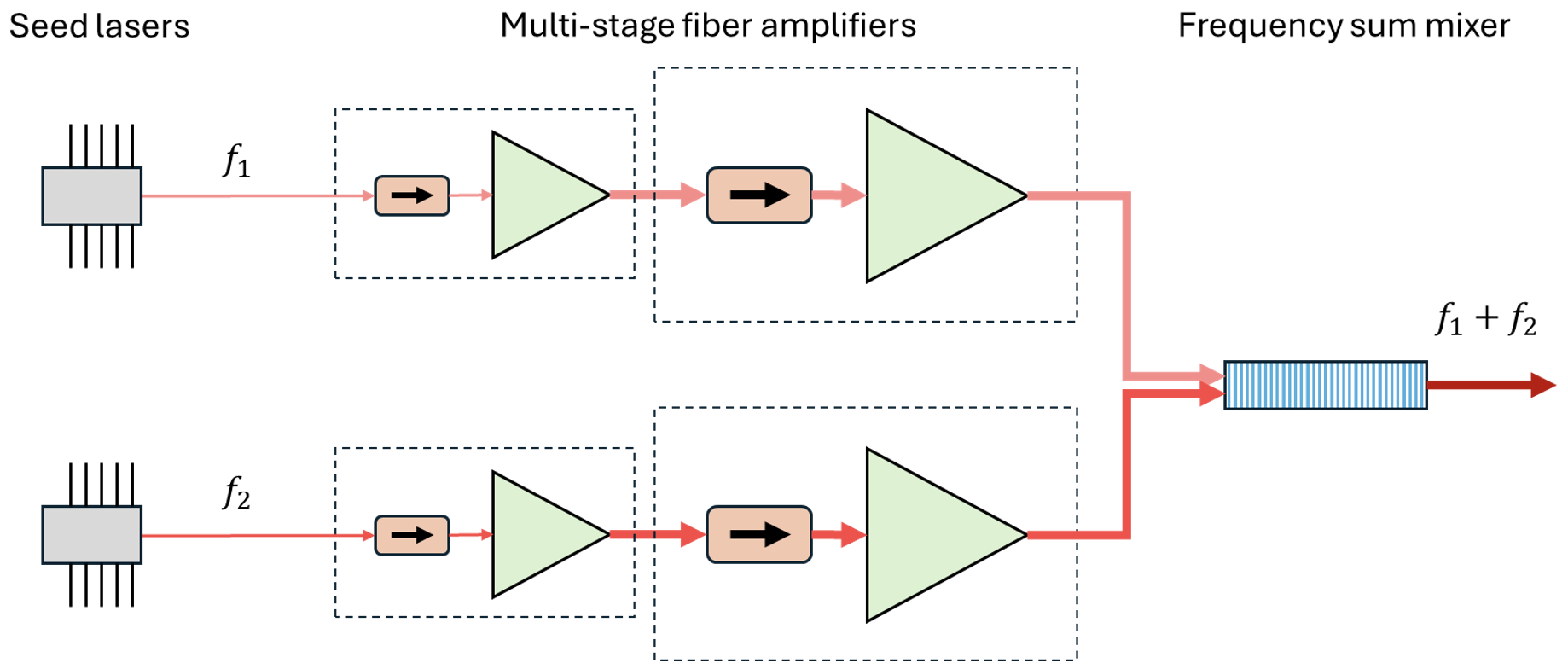| Wavelength | 619 nm |
| Output power | 1-100 mW |
| Operation Mode | CW |
| Polarization Extinction Ratio (PER) | 18 dB |
| Polarization direction | Slow axis |
| Power stability | <1% |
| Laser linewidth | <200 kHz |
| Frequency modulation (FM) gain | 500 (-323) uA/V (MHz/V) |
| FM bandwidth | DC-10 MHz |
| FM input impedance | 50 Ohm |
| FM input range | +/- 1.3 V |
| Operating temperature | 16-24 °C |
| Cooling mode | Air cooling |
| Beam quality | TEM00, M2~1.0 |
| Output fiber type | PM630 |
| Output fiber connector | FC/APC |
| Output fiber length | 2 m |
| Relative Intensity Noise (RIN) | -125 dBc/Hz >10kHz |
| Side-Mode Suppression Ratio (SMSR) | 58 dB |
| Chassis | 3U 19" Rack mount |

QTekLaserTM lasers comply with Federal Regulations (21 CFR Subchapter J, Part 1040) as administered by the Center for Devices and Radiological Health and are certified to IEC 60825-1:2014 standards.
It is the end user's responsibility to ensure that no significant light is retroreflected back into QTekLaserTM systems as this can degrade performance and potentially damage the lasers. To prevent this, the use of an external optical isolator is strongly recommended. Damage due to retroreflected light is not covered under warranty.
Ordering Information
Part Number: QT-LASR-SFG-619-0.1-A-2-2.0-0
Laser Type: Seed lasers + YDFA+EDFA + SFG
Product Selection GuidePerformance
It is the end user's responsibility to ensure that no significant light is retroreflected back into QTekLaserTM systems as this can degrade performance and potentially damage the lasers. To prevent this, the use of an external optical isolator is strongly recommended. Damage due to retroreflected light is not covered under warranty.
Beam Profile
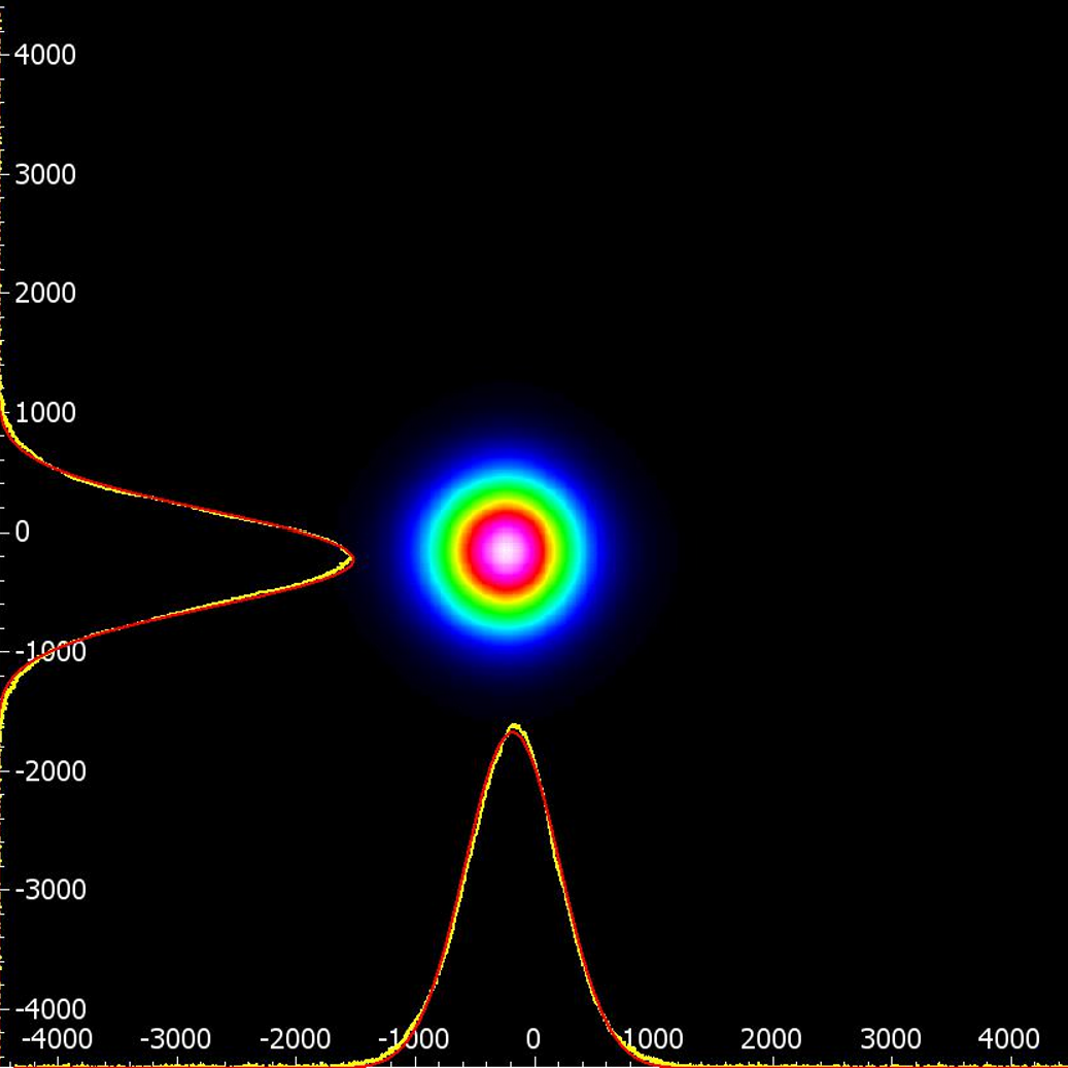
Figure 3. Beam Profile 619 nm
Optical Spectrum
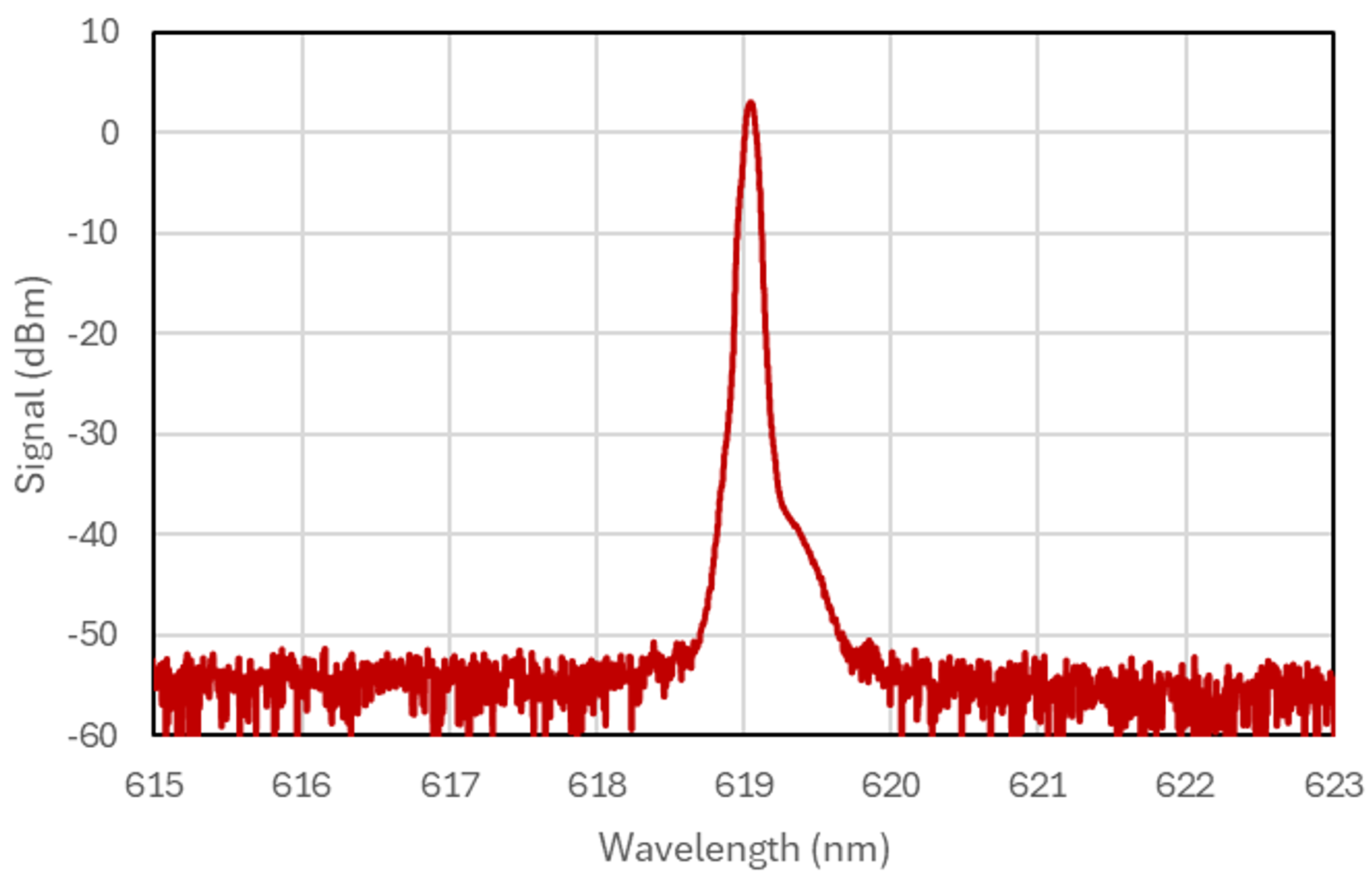
Figure 4. Optical Spectrum 619 nm SMSR 59 dB
Relative Intensity Noise (RIN)
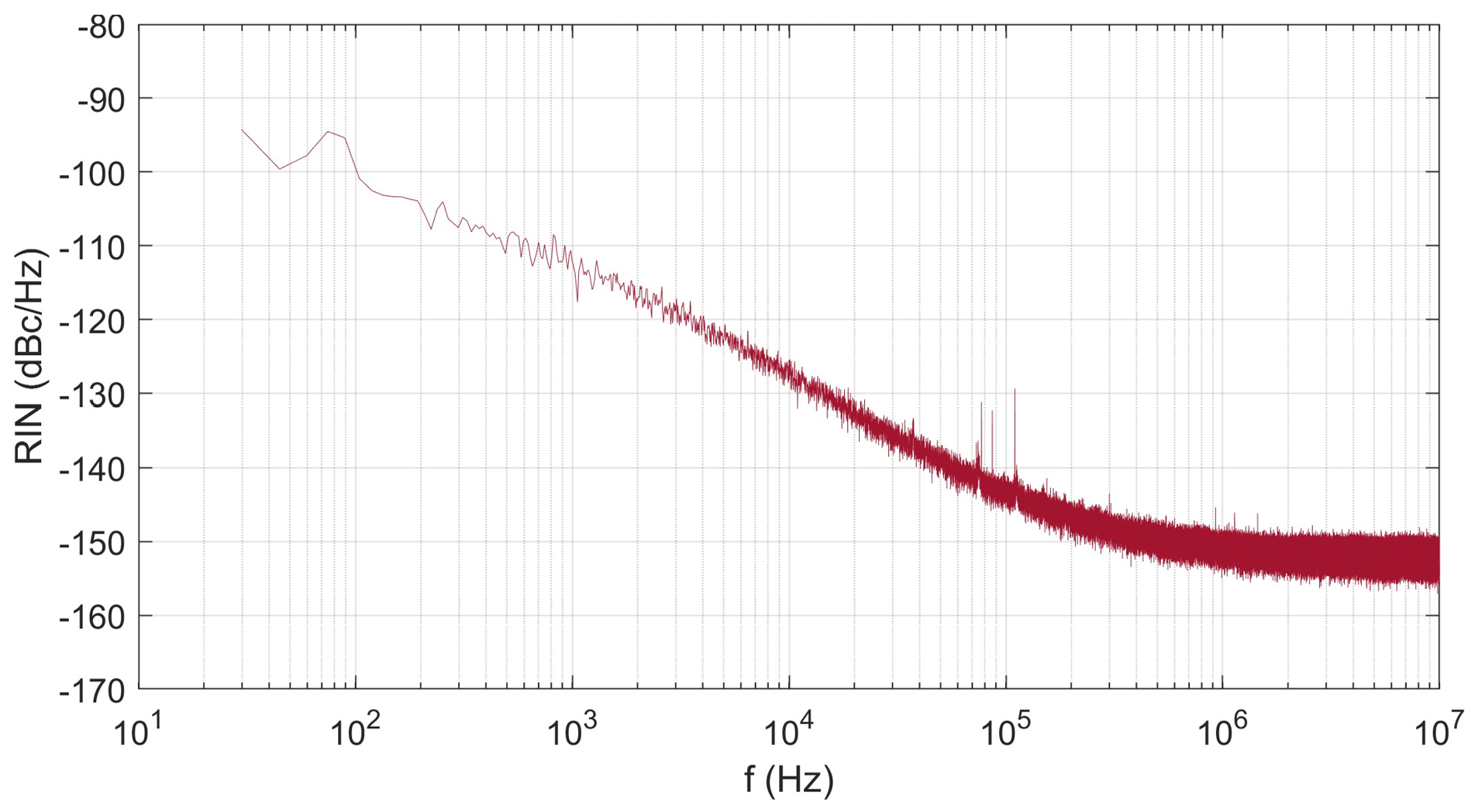
Figure 5. Relative Intensity Noise (RIN) 619 nm -125 dBc/Hz >10kHz
Laser Power vs. Current
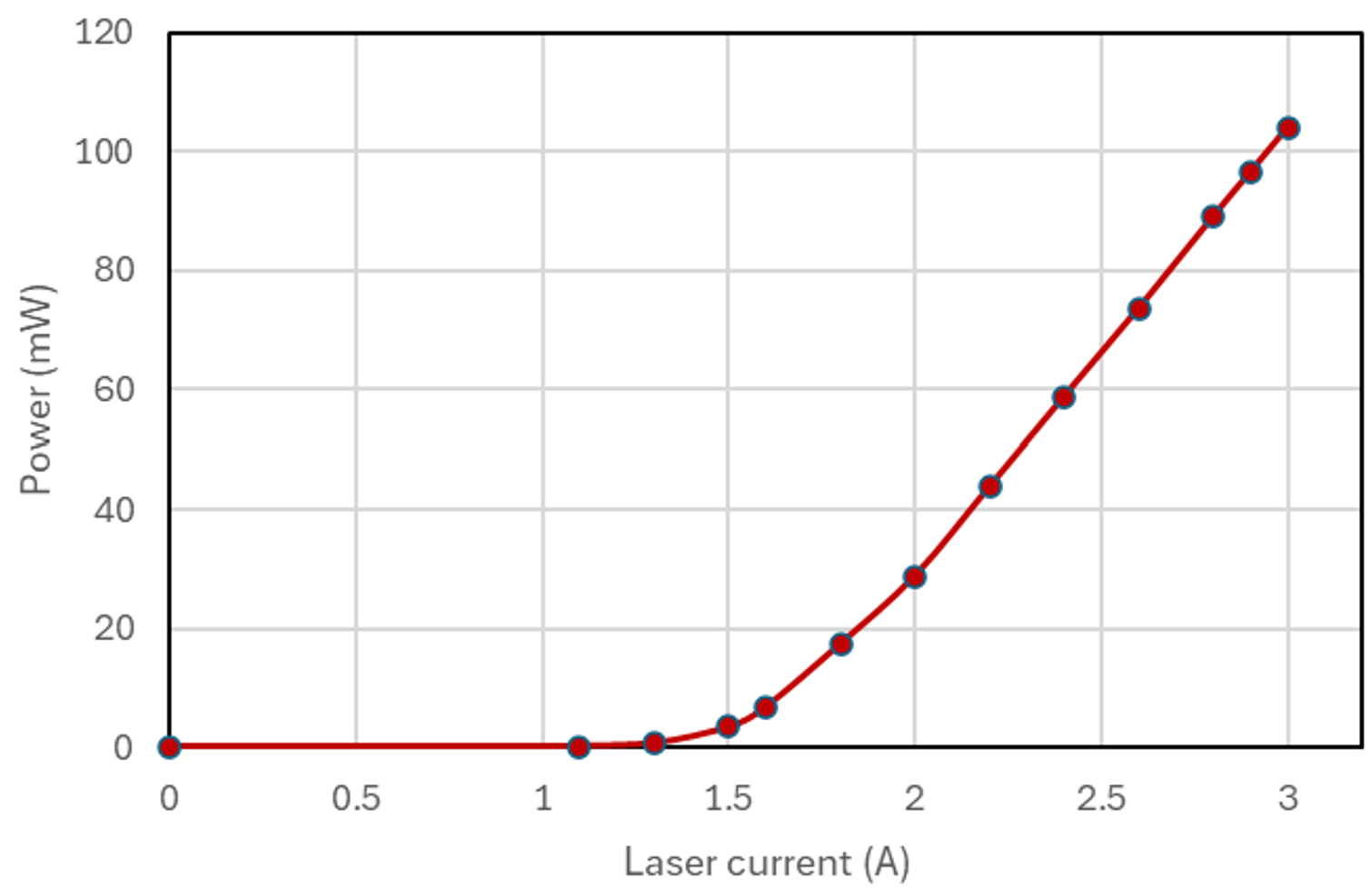
Figure 6. Laser Power vs. Current 619 nm
Tunability
Frequency vs. Seed Laser Temp.
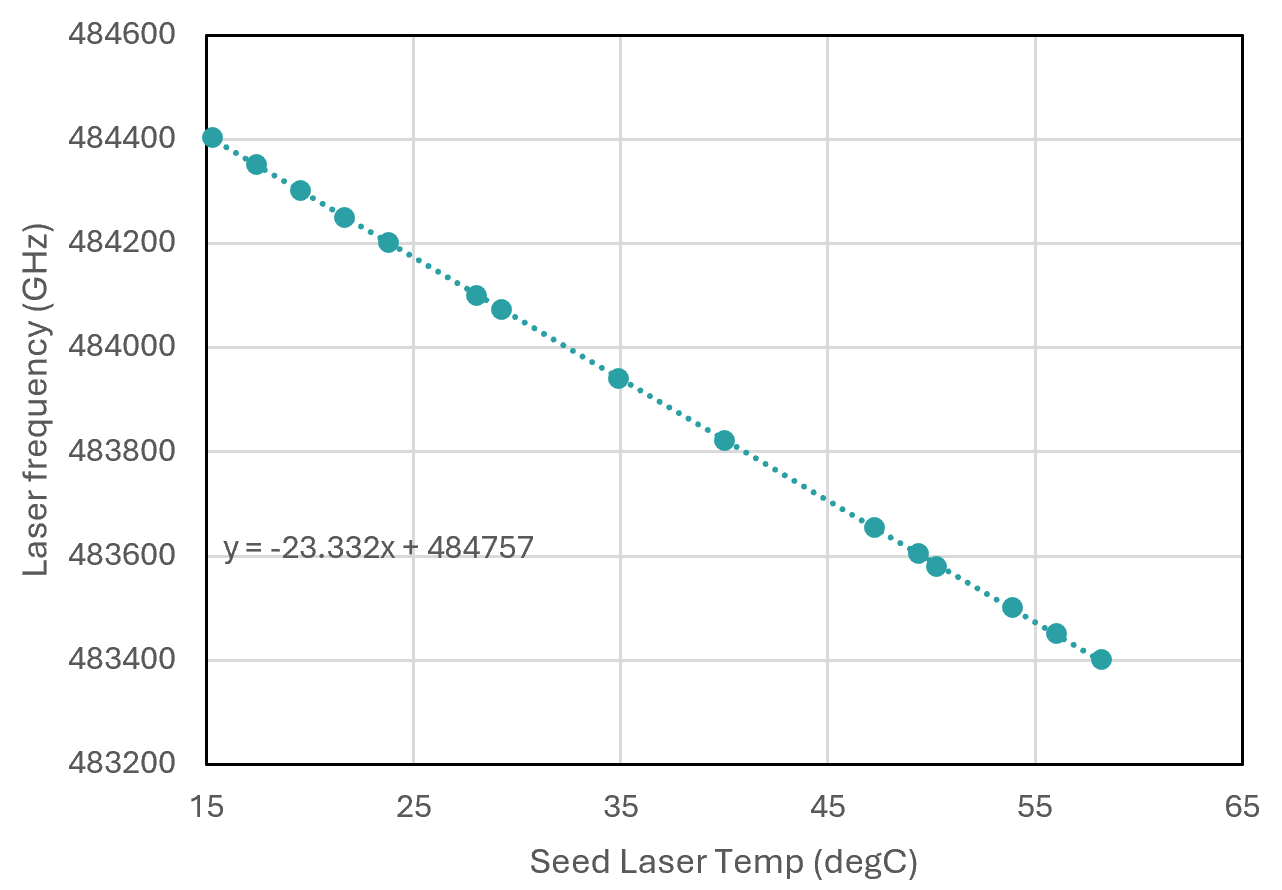
Figure 7. Tunability: Frequency vs. Seed Laser Temp. 619 nm fiber laser
Tunability
Wavelength vs. Seed Laser Temp.
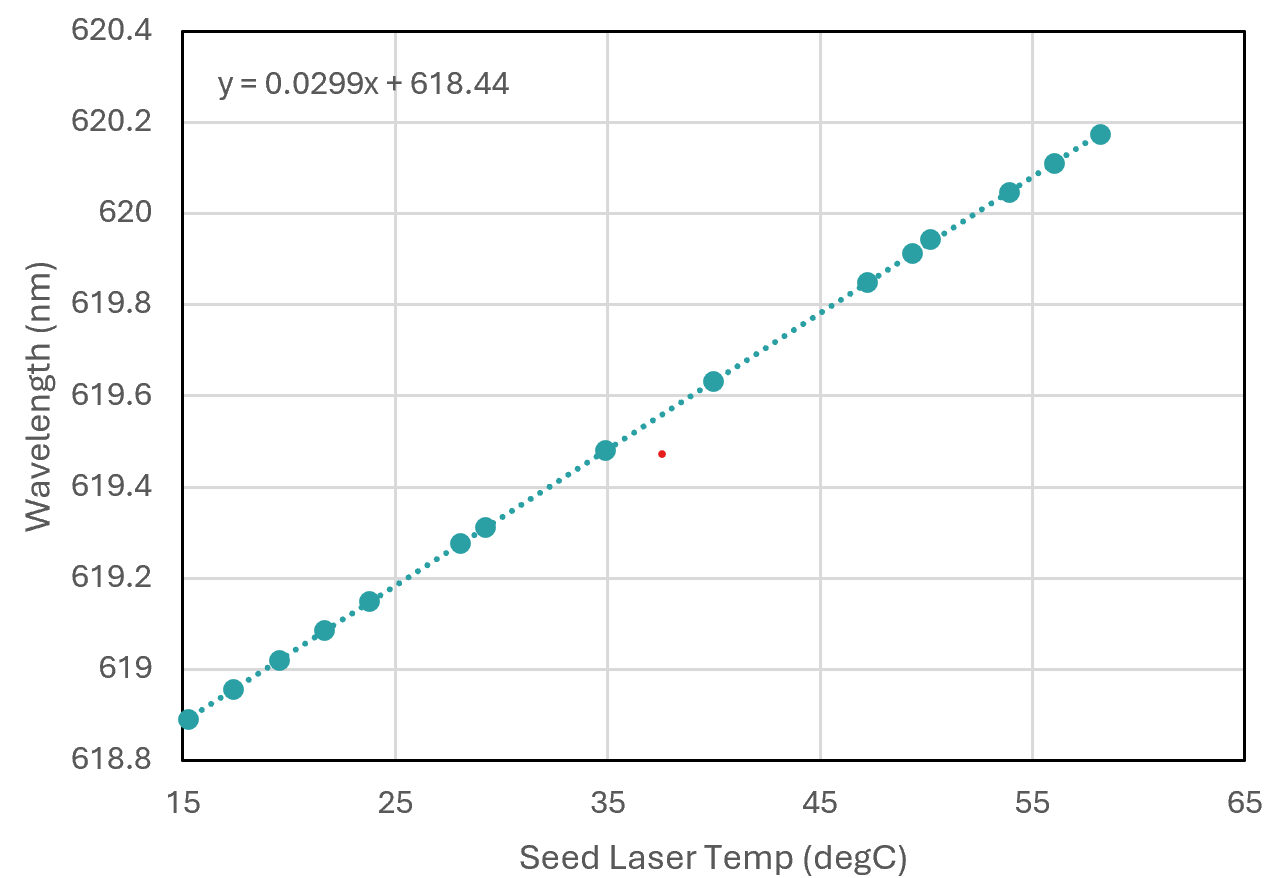
Figure 8. Tunability: Wavelength vs. Seed Laser Temp. 619 nm
Tunability
Frequency vs. Seed Laser Current
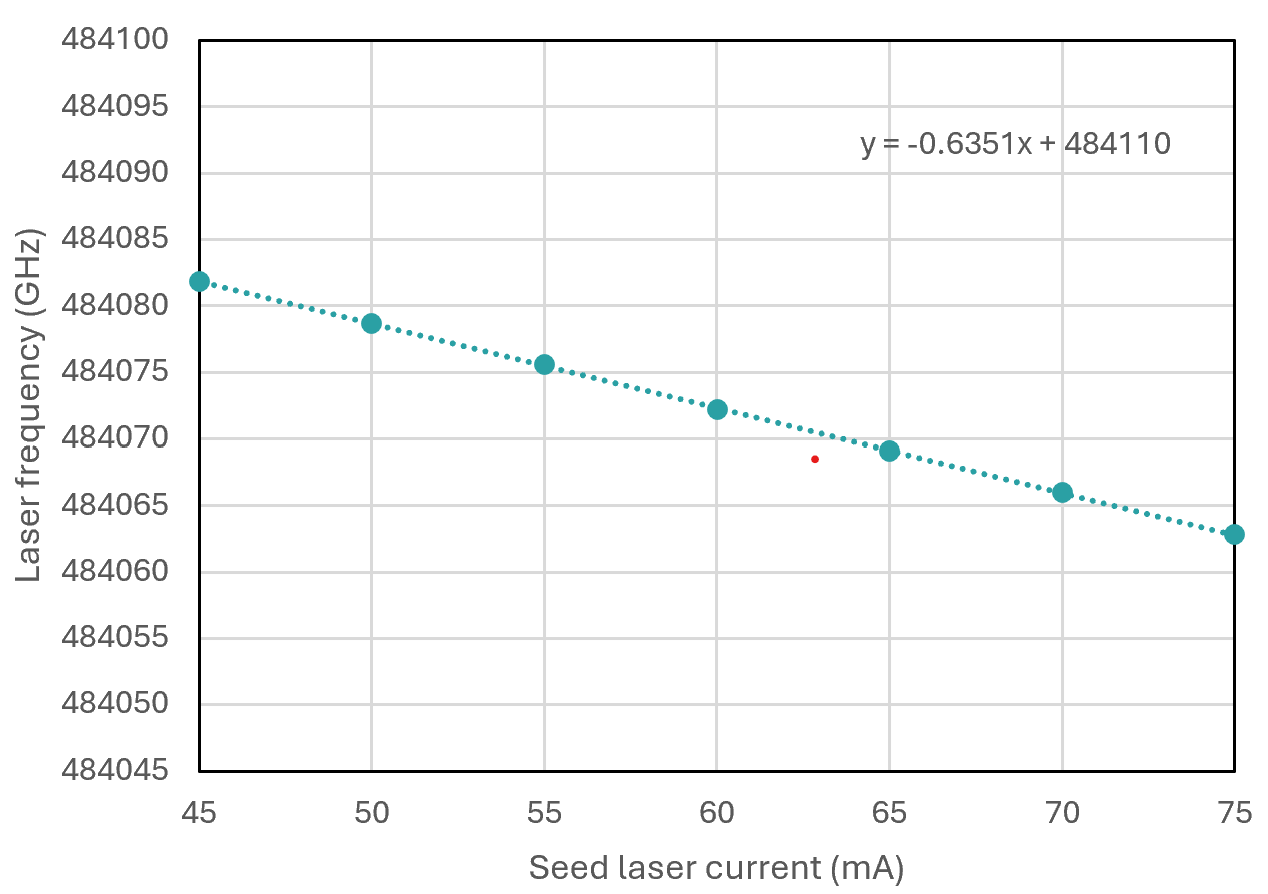
Figure 9. Tunability: Frequency vs. Seed Laser Current 619 nm
Tunability
Wavelength vs. Seed Laser Current
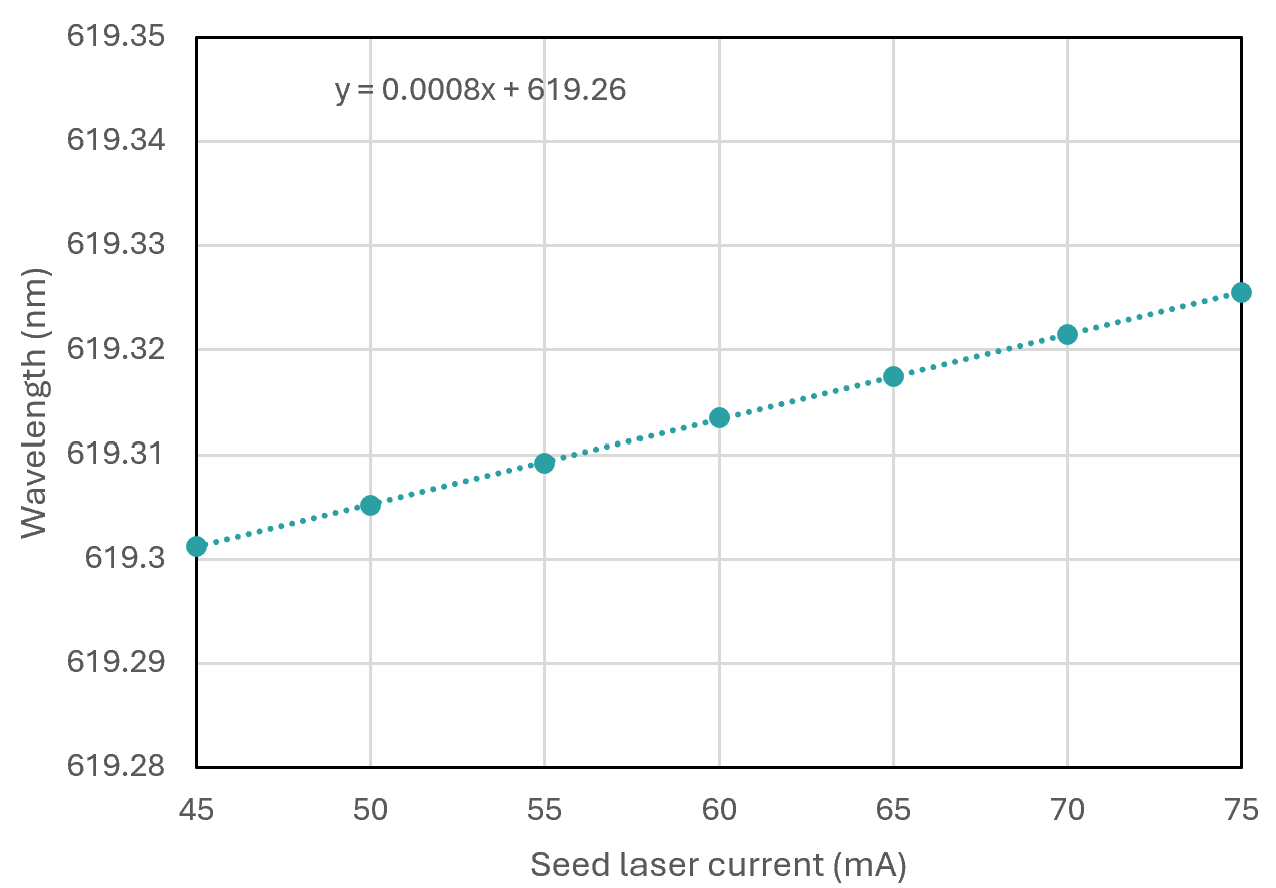
Figure 10. Tunability: Wavelength vs. Seed Laser Current 619 nm
Optimal SFG temperature vs. Wavelength
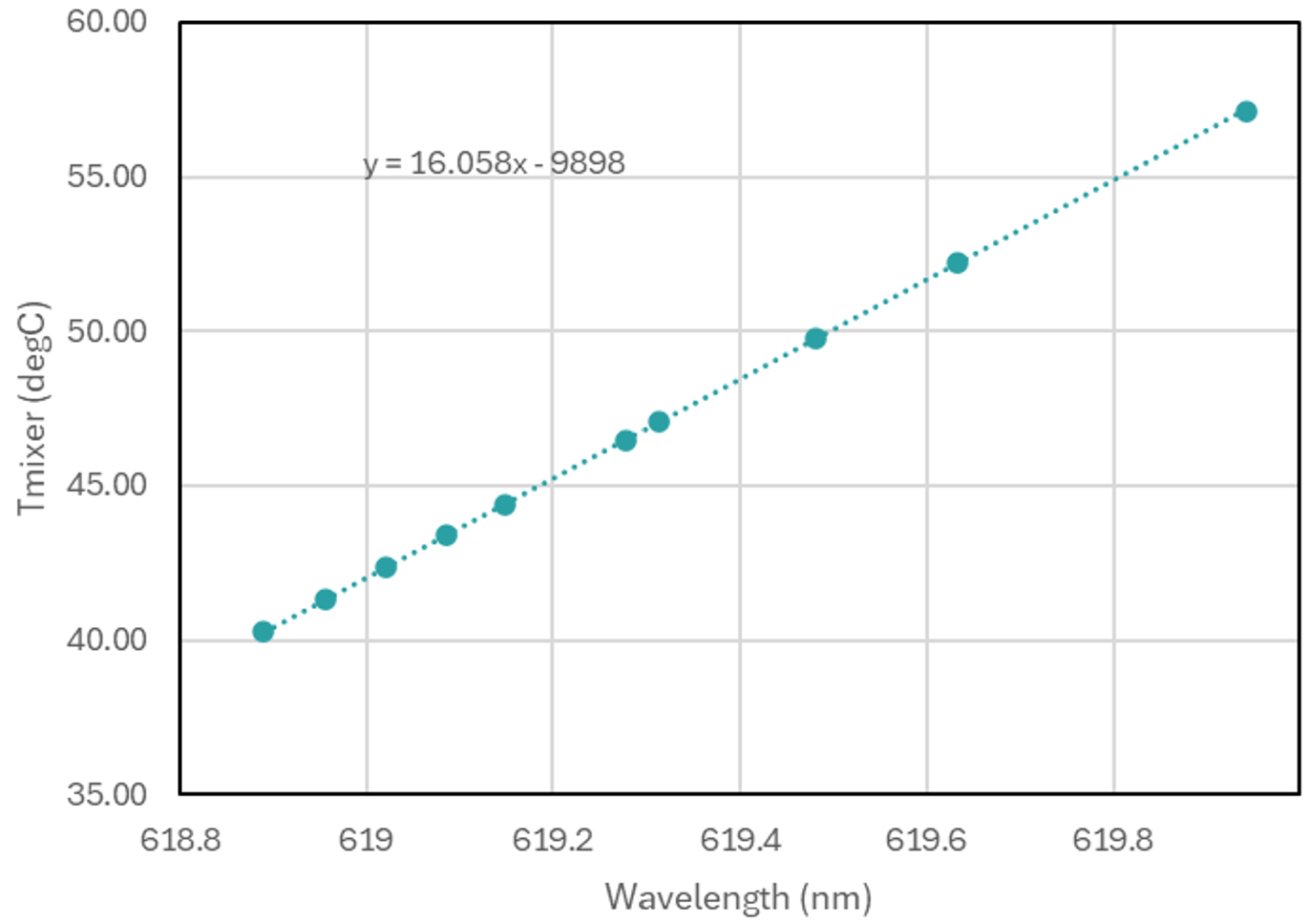
Figure 11. Optimal SFG temperature vs. Wavelength 619 nm
Frequency Modulation via the SMA port
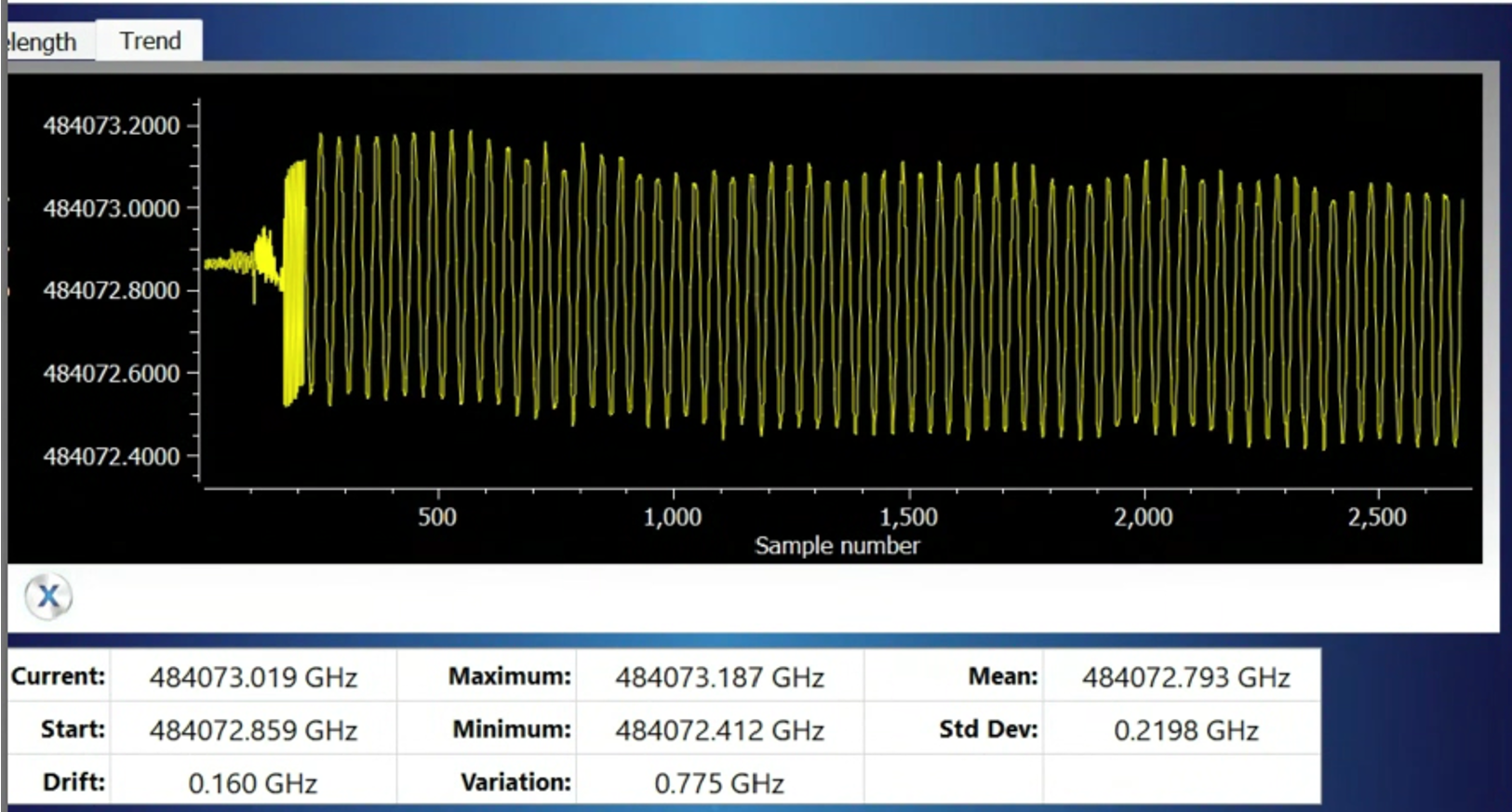
Figure 12. Frequency Modulation via the SMA port 619 nm
Quantum Networking
Quantum networks rely on exquisitely controlled, low-noise optical signals to transmit quantum states (e.g. single photons, entangled photons) over fibers or free-space links. The 619 nm fiber laser from QTekLaser™ offers a compelling light-source solution for quantum networking platforms that exploit visible-wavelength transitions (for instance, in certain quantum memories, frequency converters, or quantum repeaters).
Key Benefits in Quantum Networking
- High coherence and narrow linewidth — With a linewidth below 200 kHz, the 619 nm output supports long coherence times and low phase noise, critical for maintaining quantum phase relationships and ensuring high-visibility interference between remote nodes.
- Low relative intensity noise (RIN) — The design delivers RIN better than –125 dBc/Hz (above 10 kHz), which helps suppress amplitude fluctuations that would otherwise degrade quantum bit error rates.
- Power stability & reliability — The system offers <1% power variation over time, enabling stable link budgets and predictable behavior in long-duration experiments.
- Fiber-coupled polarization-maintaining (PM) output —The PM630 fiber output with FC/APC connector ensures polarization purity and easy fiber integration, which is important for polarization-encoded qubits or coupling into downstream optics.
- Compact, rack-mount form with IoT control — In a 3U, 19″ chassis with forced-air cooling, and integrated IoT-enabled interface, the laser is well suited for deployment in laboratory racks or quantum network nodes.
- Sum-frequency generation (SFG) architecture — By internally converting from two seed lasers via SFG, the laser can deliver a stable visible wavelength without requiring external non-linear modules, simplifying system assembly and reducing alignment sensitivity.
Use Cases & Scenarios
- Frequency conversion / quantum transduction — In many quantum networks, one needs to convert photons between telecom bands and visible or near-visible wavelengths (for atomic or solid-state quantum memories). The 619 nm source can serve as a pump or intermediate wavelength in sum-/difference-frequency conversion modules.
- Quantum memory addressing / readout — Some quantum memory media (e.g. SnV) have transitions near 619 nm; the laser can be used to address, excite, or read out states in these systems.
- Inter-node synchronization / calibration — The laser may be used to generate reference or calibration signals among nodes, enabling phase locking, channel stabilization, or alignment verification.
- Interferometric quantum protocols — In quantum key distribution (QKD) or entanglement distribution over interferometers, the high coherence and low noise characteristics support high visibility and low decoherence.
Spec Highlights for Quantum Networking Applications
| Parameter |
Value |
Why It Matters for Quantum Networking |
| Wavelength |
619 nm |
Matches visible transitions or acts as intermediate pump |
| Output power |
Up to 100 mW |
Sufficient headroom for conversion, splitting, or coupling losses |
| Linewidth |
< 200 kHz |
Supports coherent interference, long coherence length |
| RIN |
< –125 dBc/Hz (≥ 10 kHz) |
Minimizes amplitude noise that can degrade quantum SNR |
| Power stability |
< 1% drift |
Ensures stable link performance over time |
| Polarization extinction ratio |
≥ 18 dB |
Maintains polarization fidelity for polarization-encoded qubits |
| Output format |
PM fiber (PM630, FC/APC) |
Easily integrates with fiber-based quantum systems |
| Form factor |
3U rack-mount, IoT interface |
Convenient deployment in quantum network racks or nodes |
Mechanical Dimensions
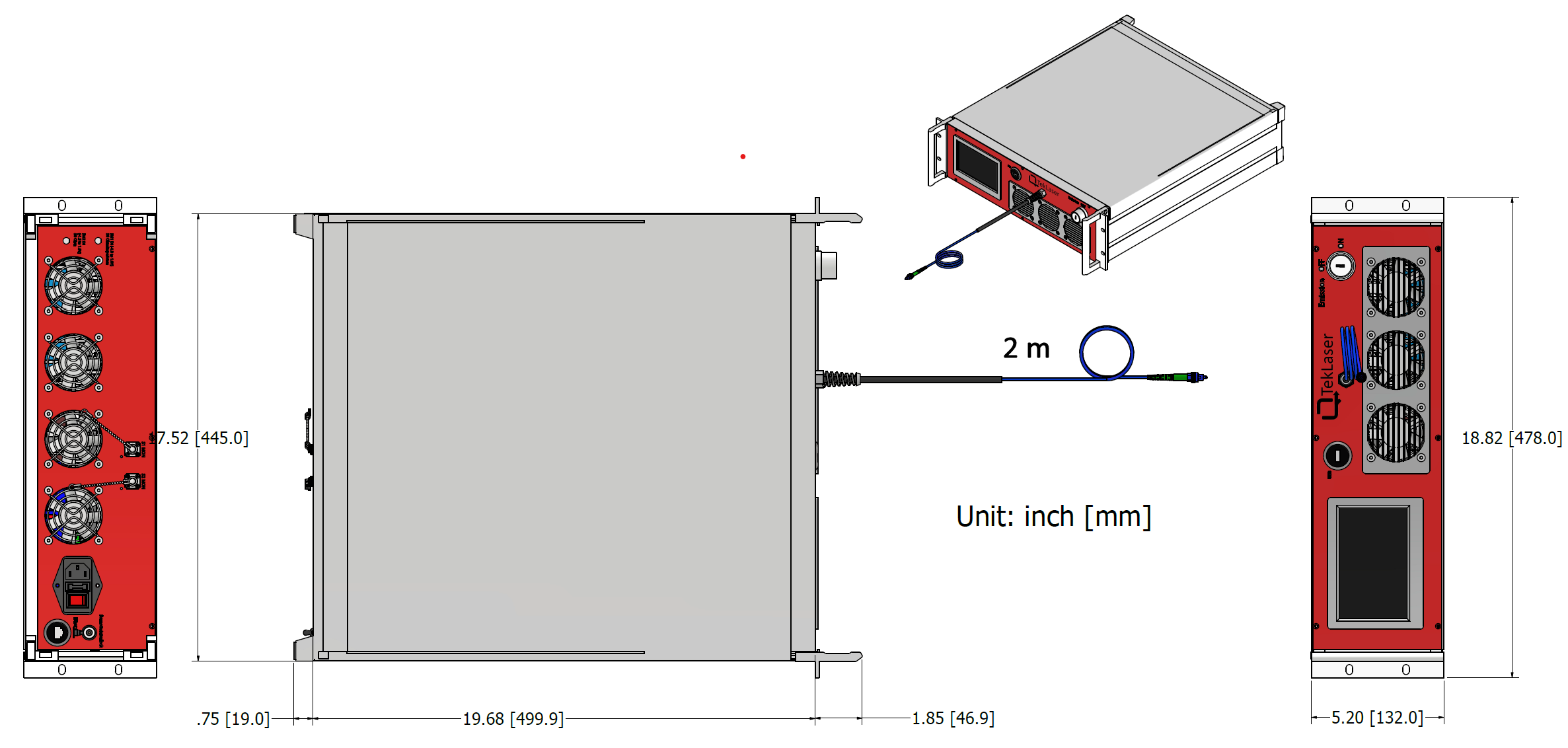
Figure 13. 619 nm fiber laser mechanical dimensions. 3U extended chassis.
Product Photographs
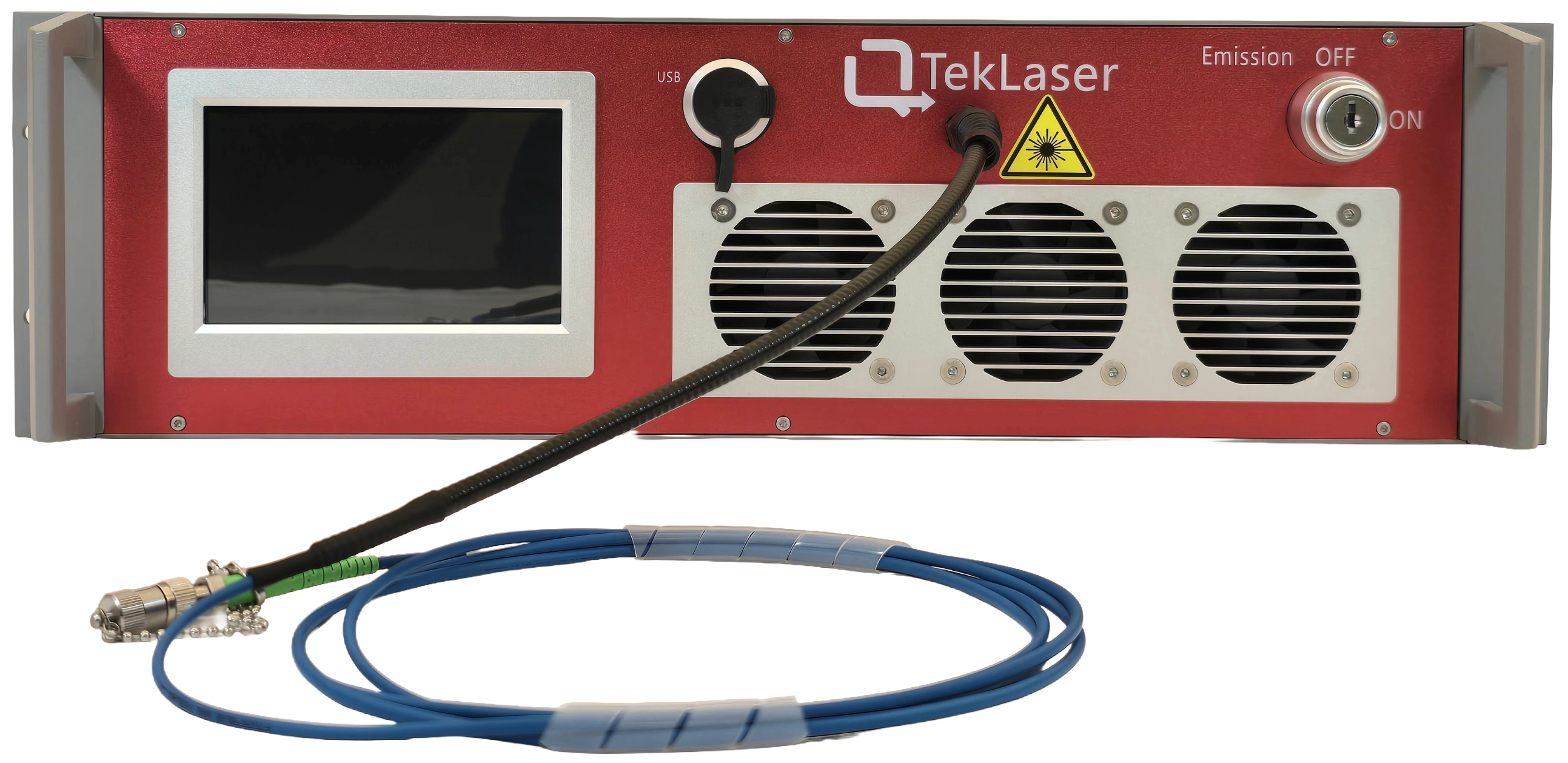
Figure 14. 619 nm fiber laser front.

Figure 15. 619 nm fiber laser back.

